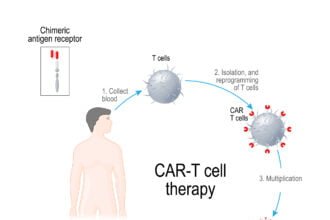Applied Behavior Analysis (ABA) Therapy is a widely recognized and scientifically validated approach to understanding and improving human behavior, particularly beneficial for individuals with autism spectrum disorder (ASD). This article delves into the principles of ABA therapy, explores its effectiveness, and offers guidance to determine if it is the right choice for you or someone you care about.
Understanding ABA Therapy
ABA therapy is a discipline that applies the principles of behavior analysis to bring about meaningful and positive changes in behavior. It is data-driven and tailored to meet the unique needs of each individual, making it a versatile treatment option. ABA involves identifying specific behaviors, understanding the context in which these behaviors occur, and applying interventions to modify these behaviors positively.
Core Components
- Assessment: ABA begins with a comprehensive assessment to identify the individual’s strengths, needs, and the behaviors that require intervention.
- Behavioral Plan: Based on the assessment, a personalized plan is developed, outlining specific goals and the strategies to achieve them.
- Intervention: Techniques are applied to encourage desirable behaviors and reduce unwanted ones. This can include positive reinforcement, teaching new skills, and modifying the environment to support changes.
- Data Collection and Analysis: Progress is closely monitored through systematic data collection and analysis to ensure the interventions are effective and to make adjustments as needed.
Efficacy of ABA Therapy
Research has consistently shown that ABA therapy can significantly improve social skills, communication, learning skills, and decrease problem behaviors in individuals with ASD. It is most effective when started at a young age and is adaptable to the needs of individuals across the lifespan. The flexibility of ABA allows it to be applied in various settings, including schools, homes, and community settings, making it accessible to a wide range of individuals.
Success Stories and Challenges
Over the last decade, ABA therapy has exploded in popularity for those with ASD, with clinics like this ABA therapy provider in Ausitn offering their services to countless Americans. For many, it has led to improved social interactions, greater independence, and enhanced quality of life. However, it’s important to acknowledge that ABA therapy requires commitment and consistency. The intensity and duration of therapy can vary, often involving multiple sessions per week over several years.
Is ABA Therapy Right for You?
Understanding the Commitment
ABA therapy is not a “quick fix” but a commitment to a process that can span months or even years, depending on the individual’s needs and progress. This journey requires regular sessions and active involvement from caregivers to reinforce learning and behavior modification strategies at home. Recognizing the time, energy, and emotional investment required is crucial for setting realistic expectations and ensuring a supportive environment conducive to success.
Financial Considerations
The cost of ABA therapy can be significant, and while many insurance plans now cover ABA services, coverage can vary widely. Investigating your insurance benefits, exploring financial assistance programs, and considering out-of-pocket expenses are important steps in assessing the feasibility of pursuing ABA therapy. Financial strain can impact family dynamics, so thorough planning and understanding of resources are essential.
Ethical and Personal Values
Some critiques of ABA therapy focus on its past use of aversive interventions and concerns about promoting conformity over individuality. While modern ABA practices have largely evolved to emphasize positive reinforcement and respect for the individual’s dignity, it’s important to align the therapy’s approach with your personal and ethical values. Seeking ABA providers who adopt a person-centered, respectful approach to therapy can address these concerns.
Adaptability to Individual Needs
The versatility of ABA therapy means it can be adapted to a wide range of behaviors, skills, and age groups. However, the therapy’s effectiveness can also depend on the individual’s responsiveness to ABA strategies. Some may find certain techniques more beneficial than others, highlighting the importance of a tailored approach that can evolve over time. Open communication with the therapy team to adjust strategies in response to the individual’s changing needs and preferences is crucial.
Wrap Up
ABA therapy offers a structured, evidence-based approach to improving behavior in individuals with ASD and other developmental disorders. Its principles are grounded in decades of research and practical application, making it a cornerstone of treatment for many. However, deciding if ABA therapy is right for you or your loved one is a personal decision that involves weighing various factors, including individual needs, goals, and practical considerations.
As with any therapeutic approach, it’s important to remain open to adjustments and to consider the therapy’s impact holistically. Success in ABA therapy is not just about achieving specific behavioral goals but also about enhancing the overall well-being and quality of life for the individual and their family. With the right support and commitment, ABA therapy can be a powerful tool in unlocking potential and fostering positive development.










